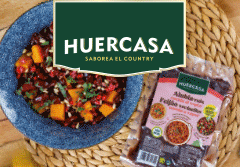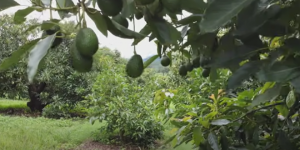Frutaria Innovation has launched a revolutionary concept: developing complete varietal ranges, an offer that enables the supply of high-quality, consistent fruit to markets from June to September. “We are not interested in doing an ‘in and out’ with a single variety, because that’s a very short-term vision. We care about long-term programmes that deliver a differentiated product,” says Aurélie Ferrieux, CEO of ASF Edition.
A bit of history
In 2018, Frutaria Innovation incorporated the Mailliard family’s genetics, formerly Agro Selections Fruits, along with its own peach and nectarine breeding programmes, and the low-chilling varieties from a recently integrated company in Seville. “We don’t rule out acquiring any promising programme that allows us to complete our varietal portfolio and take care of the breeding process,” highlights Alfonso Rivera, general manager of Frutaria.
Since 2021, the year it fully disengaged from the Mailliard family, the company has undergone major internal restructuring. One of its key objectives has been to convert the R&D centre in Perpignan into the hub that oversees all the research centres in Spain, “with the clear goal of harmonising working methods, using unified criteria, and achieving consistency in varietal selection.”
Until then, the Elne (France) centre was the only location for hybridisations. The integration of Frutaria opened new prospects in diverse geographic areas such as Seville, where the ‘Mailliard genetics’ are applied to low-chilling varieties that can also thrive in similar climates like Peru or Egypt.
Greater hybridisation opportunities
The new multicentric research structure allows Frutaria to dismiss a variety that underperforms in southern France, yet identify its strong potential in Badajoz. This gives the company a valuable asset: developing tailored varietal calendars for each production area, thanks to the wealth of accumulated data. “If we see potential in a hybrid, we graft the plant in four different geographical zones and make commercial decisions based on those results.”
The R&D team, made up of over 20 people, follows the methodology developed at the Elne centre and uses specialised software to collect real-time data across all locations.
The prestige of the Ondine brand
The Ondine brand project continues to grow, with a limited number of approved operators in each country, all complying with strict brand specifications to ensure consistent quality and packaging.
Its evolution in the European market has varied by country. Today, the label is present in 72 European supermarkets and has expanded beyond Europe to reach Australia. “The dream of the Maillard family has come true.”
Historically, the main research focus has been on peaches and nectarines, but “apricots—both early and late varieties—have gained significant momentum. I believe the key is that there are still no apricots with great flavour on the market.”
Sector concerns
According to Ferrieux, “the main concern in the breeding sector is to focus on varieties that are resistant or at least tolerant to major pests.”
This challenge is set against a European backdrop where phytosanitary products are increasingly restricted, and authorities are withdrawing them without offering alternatives. “As breeders, we must anticipate these issues and promote solutions at this level.”
Overall, “after sharp cost increases, the challenge is to improve profitability. That means cultivating fruit that not only tastes good but is also highly productive and yields a high percentage of first-class ‘pack out’, which brings the best return.”
Finally, one reality cannot be ignored: climate change. “We have to be proactive in the face of this. The same applies to water scarcity and the water stress it causes in trees. All of this must be taken into account.”




















